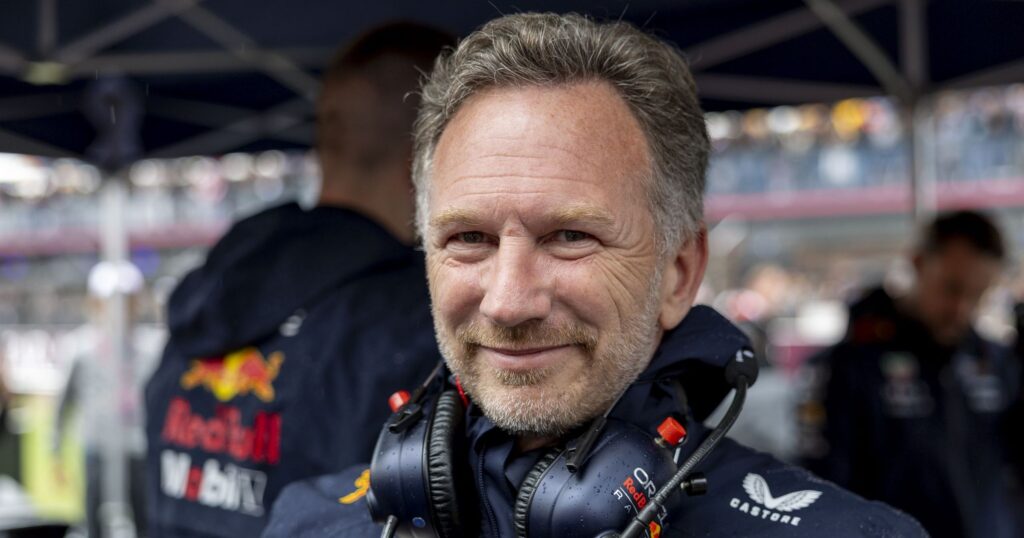Christian Horner, a significant figure in modern Formula 1, has been removed from his position as team principal of Red Bull Racing after serving in the role for an impressive twenty years. This surprising development marks the end of an era, as Horner, aged 51, has been pivotal in transforming the Milton Keynes-based team into a powerhouse of the sport since his appointment in 2005. Under his leadership, Red Bull Racing has garnered a remarkable record, clinching six Constructors’ Championships and eight Drivers’ Championships, establishing a legacy that few teams can rival.
In a recent announcement, Red Bull Racing revealed that Laurent Mekies would succeed Horner as the new team principal. Prior to taking on this prestigious position, Mekies had been managing the Racing Bulls, contributing to the team’s ascent and development in Formula 1. His extensive experience and familiarity with the team’s operations are expected to pave the way for a seamless transition, although fans and stakeholders will undoubtedly feel the void left by Horner’s departure.
Oliver Mintzlaff, Red Bull’s managing director, expressed heartfelt gratitude towards Horner for his contributions over the two-decade tenure. Mintzlaff stated, “We would like to thank Christian Horner for his exceptional work over the last 20 years. With his tireless commitment, experience, expertise, and innovative thinking, he has been instrumental in establishing Red Bull Racing as one of the most successful and attractive teams in Formula 1. Thank you for everything, Christian, and you will forever remain an important part of our team history.” This statement underscores the profound impact Horner had on the team and the sport itself.
Horner’s exit is not an isolated incident, as Red Bull Racing has seen a series of significant changes within its ranks in recent years. Notably, sporting director Jonathan Wheatley has transitioned to Sauber, and the prominent designer Adrian Newey has taken his talents to Aston Martin. Such changes suggest a period of reorganization within the team as it strives to regain its dominant status in Formula 1 amidst fierce competition.
Currently, Red Bull Racing faces challenges on the track, with the team sitting fourth in the Constructors’ Championship standings as the season progresses. Despite the past success encapsulated by their star driver, Max Verstappen, who has remarkably won the last four Drivers’ Championships, the current campaign has not unfolded as hoped. Verstappen finds himself in third place in the standings, trailing McLaren’s promising duo of Oscar Piastri and Lando Norris, highlighting the unpredictability and competitive nature of motorsport.
Horner’s influence extended beyond racing results; his contributions to the sport have been recognized at the national level. In 2013, he was appointed an Officer of the Order of the British Empire (OBE) in The Queen’s Birthday Honours for his services to motorsport. Furthermore, he received a promotion to Commander of the Order of the British Empire (CBE) during the 2024 New Year Honours, a testament to his dedication and impact on the sport.
As the Formula 1 community reflects on Horner’s commendable career, it is crucial to acknowledge the legacy he leaves behind at Red Bull Racing. His strategic mind, intense work ethic, and ability to nurture talent have set a benchmark for future generations in motorsport. Transitioning from such a formidable figure is a daunting prospect for any team, and the challenge now lies with Laurent Mekies and his capabilities to adapt and lead Red Bull Racing into a new chapter.
The sentiment shared by fans, staff, and partners of Red Bull Racing is one of appreciation for Horner’s two decades of service. As motorsport fans eagerly await the next stage of Red Bull Racing’s journey, the excitement for the upcoming season remains palpable, with new dynamics emerging and fresh possibilities on the horizon.












